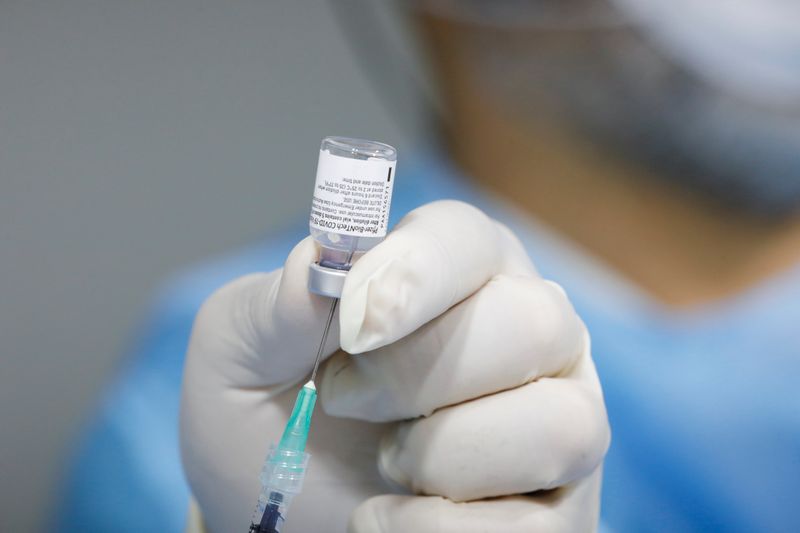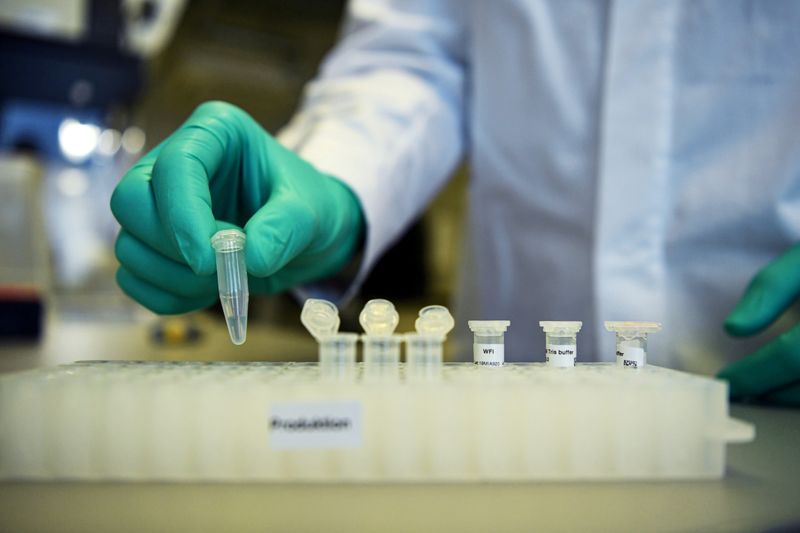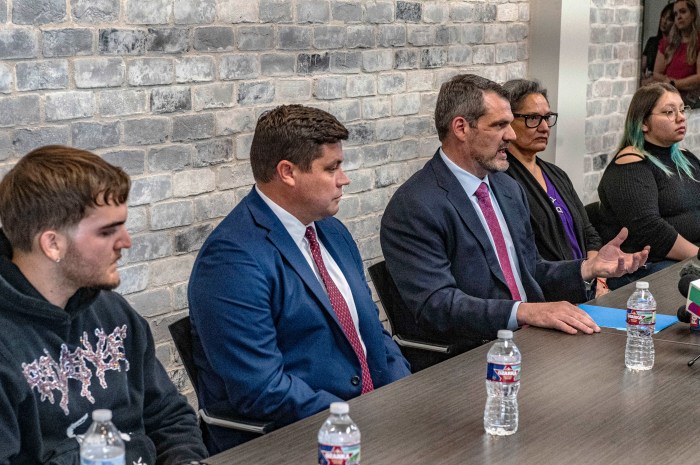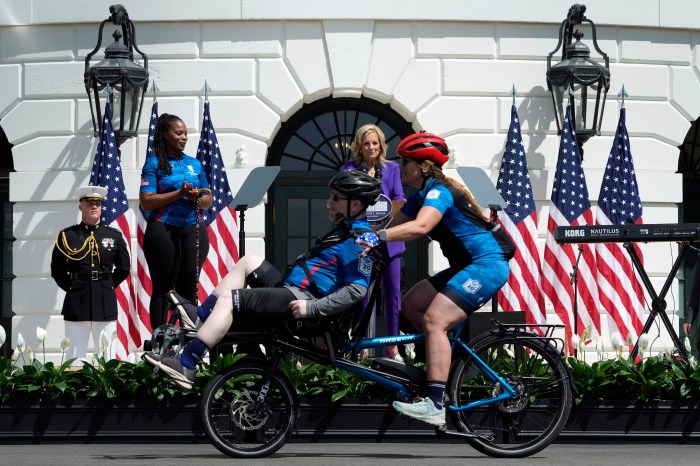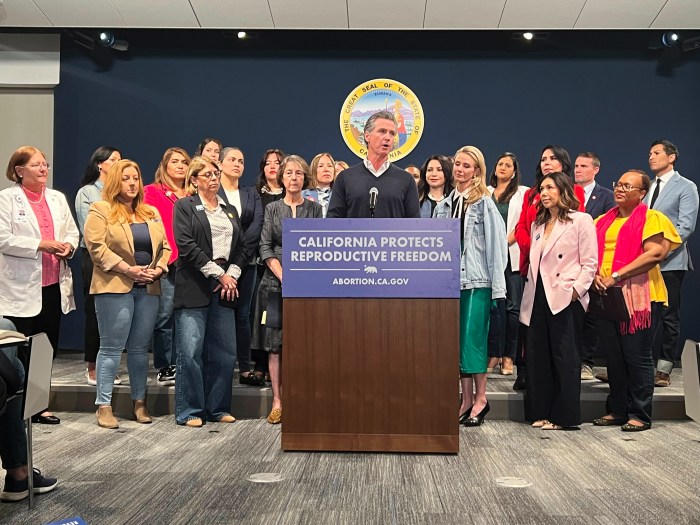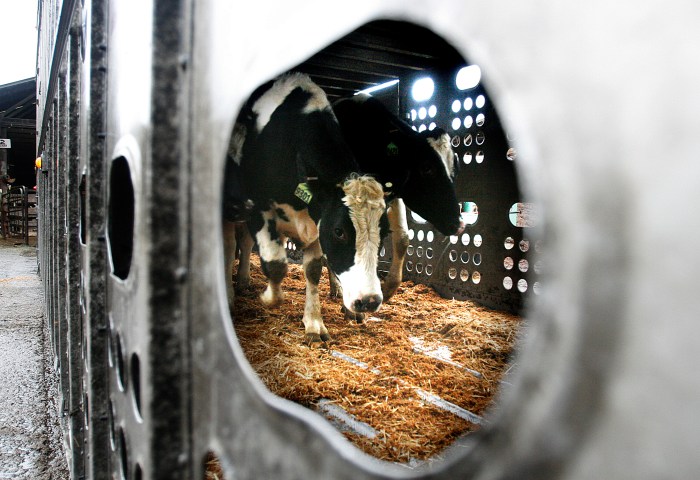BERLIN (Reuters) – The German government signed two preliminary deals with German biotech firms BioNTech and CureVac in the summer to secure 50 million doses of their COVID-19 vaccines, according to a health ministry document and an official.
The deals, which were not announced when they were signed, are controversial because EU governments had agreed not to negotiate bilateral supply agreements with vaccine makers in a effort to avoid vying for shots.
The ministry official, speaking on condition of anonymity, said Germany signed a memorandum of understanding with CureVac on Aug. 31 for the supply of 20 million doses of its vaccine under development.
It signed a similar preliminary deal on Sept. 8 with BioNTech for 30 million doses of the vaccine the firm has developed with U.S. pharmaceutical giant Pfizer, the official said, confirming previous public statements by German officials issued after the government was accused of not having secured enough vaccines.
The internal health ministry document dated Jan. 7 and seen by Reuters had the same figures.
The health ministry was not immediately available for comment on the CureVac deal. A CureVac spokesman declined to comment because talks with the German government were ongoing. BioNTech was not immediately available for comment.
Both accords were signed while the EU was negotiating supply deals with the two companies. The EU talks wrapped up in November when the 27-nation bloc secured 300 million doses from Pfizer-BioNTech and 405 million from CureVac.
The two German companies have been funded by Germany and by the EU to develop their vaccines.
Deliveries to Germany under both deals would start only after EU countries were supplied under EU deals, according to the official. This included an EU contract announced by Brussels earlier on Friday for 300 million additional doses, a spokesman for the health ministry added.
Despite this commitment to delay deliveries, Germany appears to have violated the pact that forbade governments to talk separately to vaccine makers, which was meant to ensure no country got privileged access to vital shots.
“No member state is allowed to negotiate in parallel,” the EU Commission President Ursula von der Leyen said on Friday. However, a Commission spokesman repeatedly declined to comment on whether the German deal was legal under EU agreements.
(Reporting by Andreas Rinke and Sabine Siebold in Berlin; additional reporting by Thomas Seythal and Ludwig Burger; Writing by Francesco Guarascio @fraguarascio in Brussels; Editing by Giles Elgood)

